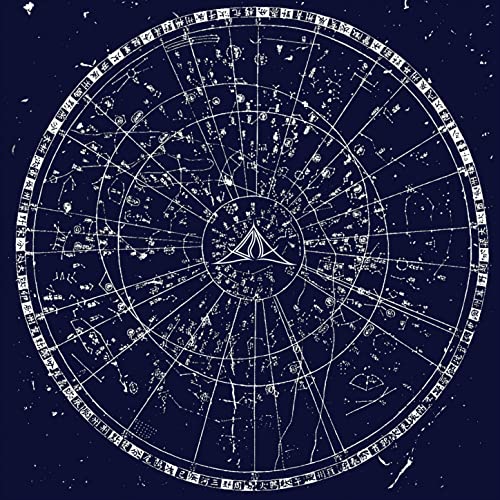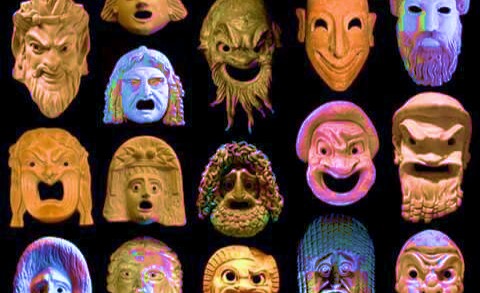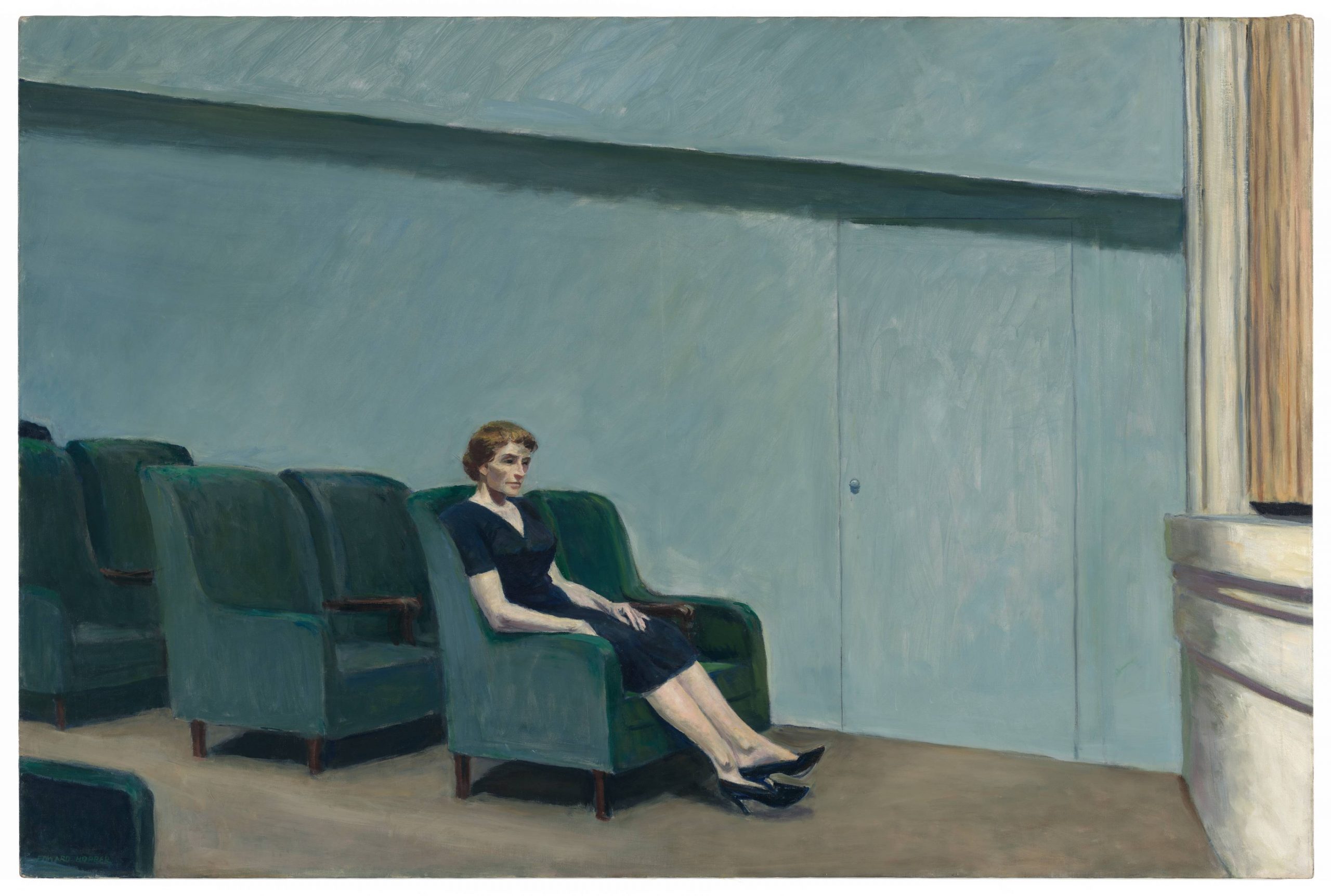In our end is our beginning.
The New Tlön

A city of heaven returns to our barren earth.
In this essay I will presume to speak for the dissident Right. I have as much claim to this power as I have to speak for the infinite stars. And yet stars, like dissidents, have much to say, if one only learns to listen.
“Tlön, Uqbar, Orbis Tertius” is a story by Jorge Luis Borges about an encyclopedia that remakes the whole of the world. It begins with a small brotherhood who conspire to fabricate a history for a non-existent place, which they secretly insert into real encyclopedias and almanacs. The story opens with a man who mistakenly quotes a proverb from the fictional world of Tlön, believing it to be genuine.
In time, scholars and laymen alike become fascinated with the imaginary country of Uqbar in the region of Tlön, and they participate in the creation of its lore, its histories, its economies, and its fashions. The encyclopedia of Tlön is so detailed, the narrator surmises it to be the work of “astronomers, biologists, engineers, metaphysicians, poets, chemists, algebraists, moralists, painters, geometers…directed by an obscure man of genius.” As its knowledge spreads, Tlön becomes more real than what is real, and the culture of earth is supplanted by this new simulacrum, as people increasingly adopt the customs and languages of the world they have invented.
We may surmise that Mencius Moldbug (true dissidents—those with truly dangerous opinions— prefer pseudonymity as a matter of course) is an admirer of Borges’ story. I know this because he chose to name his startup Tlön, and there he has invented a new kind of computer operating system for our new century. The Tlön that he imagines, however, is more ambitious even than that.
Computing is a tool for communication, and although we are lost if our enemies own our networks, it is not enough to own our networks if we do not also have good things to say. What Moldbug wishes to communicate—what we wish to communicate, as aspirants of the Art Right—is nothing less than a total replacement for the reigning epistemology. We will create a new history, a new aesthetic, and a new religion—even that.
Mogging toward Bethlehem
But lest this all should sound a bit progressive, let us pause to emphasize that those things we “create” will be synthesized from our best understanding of the past. We shall call this a restoration, though everything we wish to restore has been long destroyed, though the glorious histories we imagine are in some ways dubious, hyperreal, and idealized.
Every revolution rewrites history, and changes the meanings of words in order to make the wisdom of the past illegible. What we propose is to give this same treatment to the liberal, scientific, egalitarian order that tyrannizes us in the current year.
Moldbug himself has said that if there is a future for Western civilization, it lies in the shadow of the cross. We must note that although the kernel of Christianity is good, the church that runs on top of it is riddled with malware, badly in need of security patches—software updates, if you will, that we have yet to write. We can confess, as realists, that “man invented art for one reason, to mog.” But although the impetus of art may be social dominance, its ultimate object must be to commune with God.
What does the divine care for “new paradigms,” for gay portrayals of “the human condition?” Art which has Man as its object is folly, and this is the reason for its permeating ugliness; Man without God is ugly, and the only truth that manifests in such art is the truth of how ugly Man can become. The art that we SHALL make will have God as its intended audience, and all other beholders will be merely incidental. This is how it must be, and how it always has been, with regard to great and poignant art.
The production of art began with ceremonial objects destined to serve in a cult, and the sheer existence of such objects was always more important than their display. The elk portrayed by the man of the Stone Age on the walls of his cave was an instrument of magic. He did expose it to his fellow men, but in the main it was meant for the spirits. Certain statues of gods are accessible only to the priest in the cella; certain Madonnas remain covered nearly all year round; certain sculptures on medieval cathedrals are invisible to the spectator on ground level. These objects edify Man because they are aimed at Heaven.
The strong perform. More and more, you will come to know the vitality and the veracity of our spirit.
Ancient of Days
We do not come with ideology, because our God is the God of nature, and nature always wins in the end. Your antibiotics will lose the arms race against bacteria; your fiscal shell game will keep you rich on paper as the world gets poorer; your sexual decadence will bear no fruit but sterility.
You will learn the name of our God, a name that was once familiar, and which has become strange. Our church will not resemble the churches of old, but our men will resemble the men of old, because our God is very old, indeed.
You will hold in your hands a vast unknown history of a world that is alien to you, with its architecture and its playing cards, with the dread of its mythologies and the murmur of its languages, with its emperors and its seas, with its minerals and its birds and its fish, with its algebra and its fire, with its theological and metaphysical controversy.
Moldbug has written that anyone can look outside to see a fire burning in deep space, where nothing can live and no fire should be. We will light this fire for you; and everyone will be seasoned with fire; we will show you this color out of space.
Your schools will be invaded by the language of Tlön; the teaching of its harmonious history (filled with moving episodes) will erase the one which governed in your childhood. Your temples will crumble, and in their place you will find ominous idols, icons of mystery and power.
The contact and the habit of Tlön will disintegrate this world. Even now, in dark places you dare not tread, every ear is cocked for this music of the future, even now.
The American Mind presents a range of perspectives. Views are writers’ own and do not necessarily represent those of The Claremont Institute.
The American Mind is a publication of the Claremont Institute, a non-profit 501(c)(3) organization, dedicated to restoring the principles of the American Founding to their rightful, preeminent authority in our national life. Interested in supporting our work? Gifts to the Claremont Institute are tax-deductible.
Does Curtis Yarvin understand Aesthetics?
Now more than ever, there is no way to solve the problem of men.
New artifacts overthrow old impostures.
America’s aesthetic movements must resist commodification.





